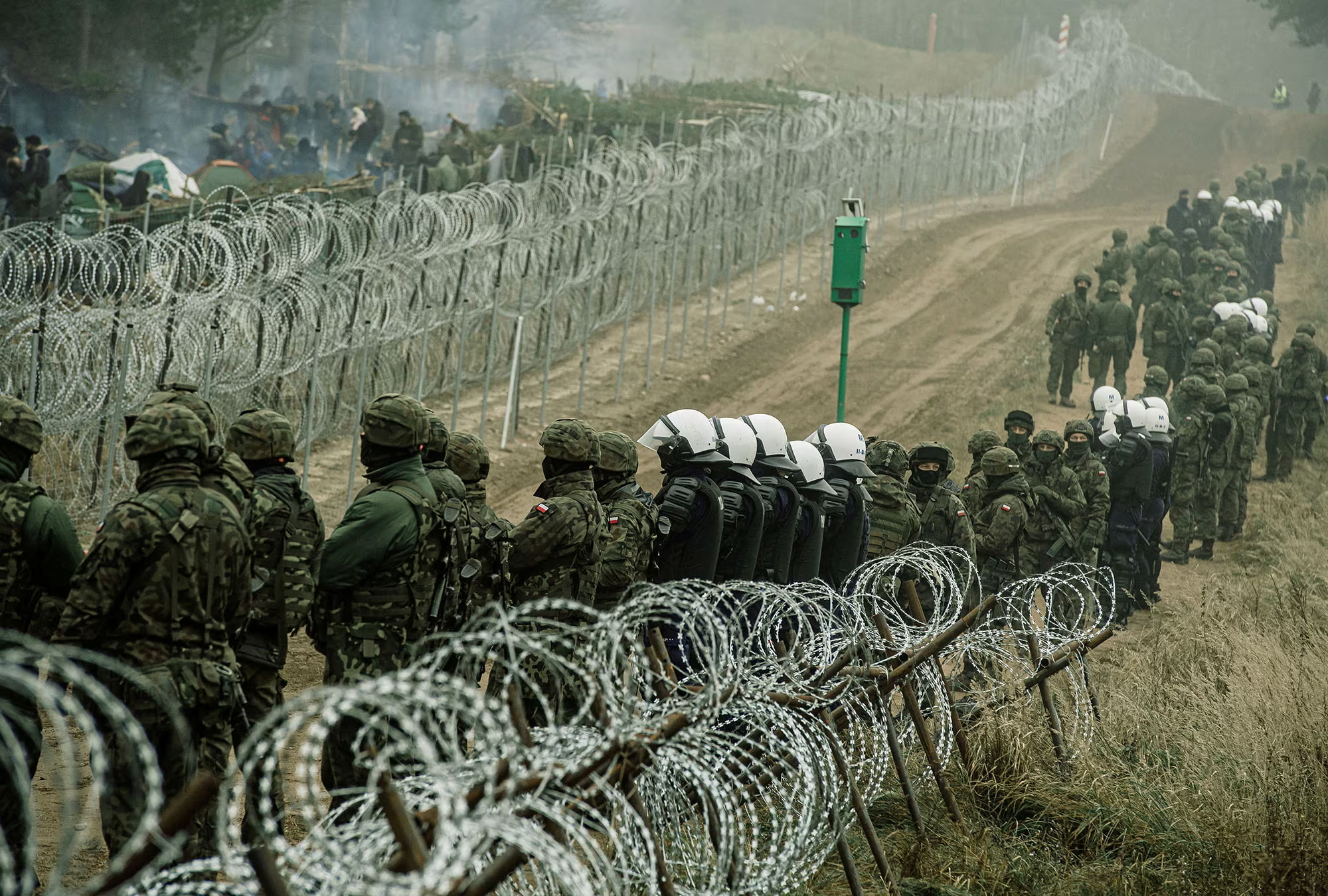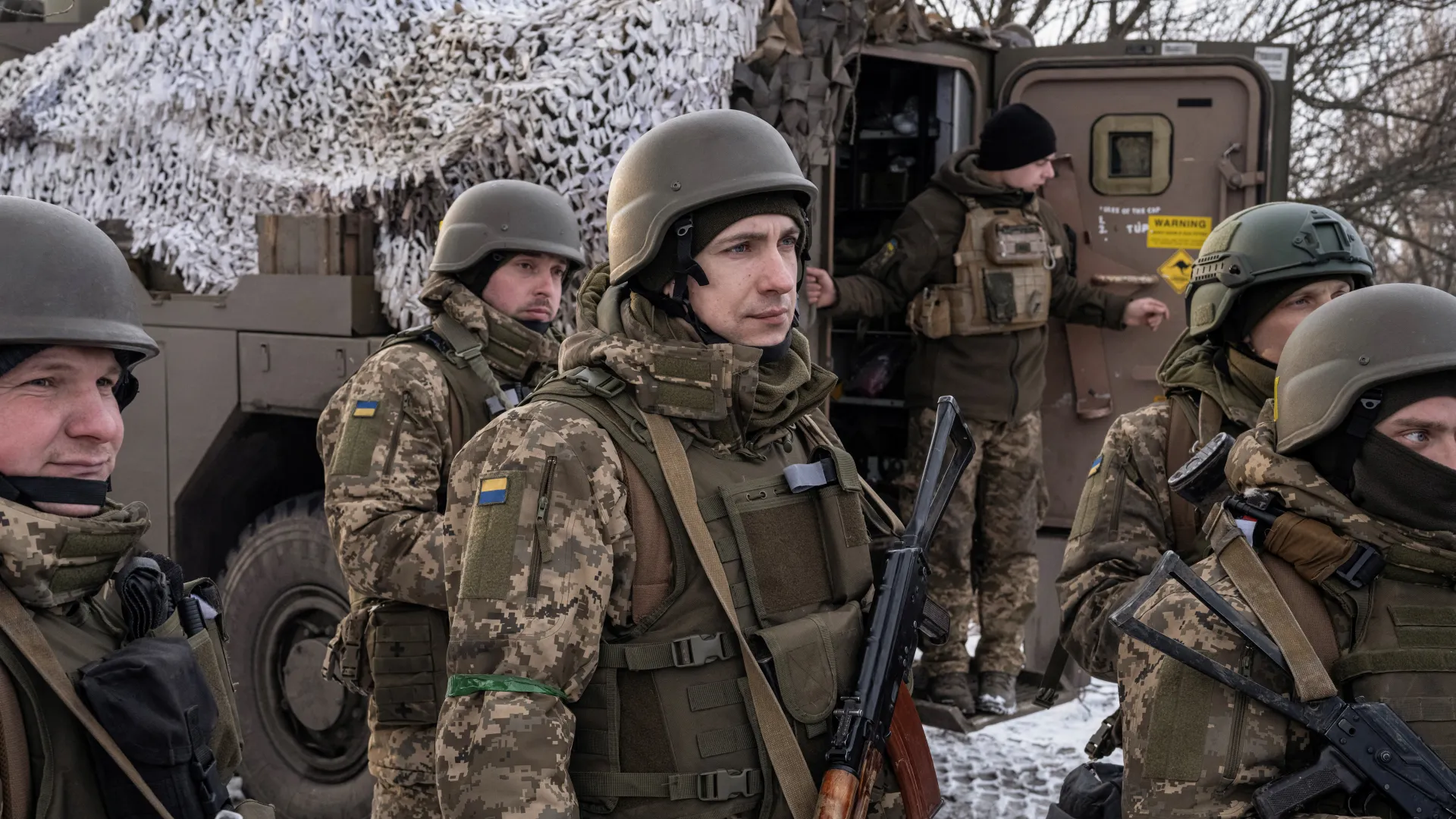Poland’s six-month presidency of the European Union is heavily focused on security, particularly given the ongoing conflict in Ukraine. The situation along Poland’s border with Belarus exemplifies the complexities of defending the European bloc and its values.
The border is patrolled by 13,000 border guards and soldiers covering approximately 400 kilometers (250 miles). This area has effectively become a buffer zone since Russia’s invasion of Ukraine three years ago. Further north, similar fortifications are in place along Poland’s border with the Russian exclave of Kaliningrad.
Poland plays a key role in supporting Ukraine, serving as the main conduit for Western-supplied arms, ammunition, and equipment that bolster Ukraine’s military efforts. Meanwhile, Belarus, an ally of Russia, has been used as a staging area for Russia’s invasion of Ukraine.
At the border near Połowce, a 5.5-meter (18-foot) steel barrier reinforced with razor wire and topped with security cameras divides communities that were once on friendly terms but are now cautious due to the war.
Drones, helicopters, and armored vehicles patrol the area. On January 16, the Polish EU presidency invited 60 reporters from international media to observe the security efforts, with around 40 border guards and troops seen at the border crossing.
The government in Warsaw argues that the extensive security measures are necessary due to Russia and Belarus waging a hybrid war. This includes assisting groups of migrants, mostly from Africa and the Middle East, to breach the border and destabilize Poland and Europe.
“We have tightened our visa policy, and above all, we have decided to suspend the right to asylum wherever we are dealing with mass border crossings organized by Belarus and Russia,” Prime Minister Donald Tusk said on Friday.
Last year, nearly 30,000 attempted border crossings were recorded. Many of the migrants are young men, primarily from Ethiopia, Eritrea, and Somalia.
They typically enter Belarus on tourist or student visas and are reportedly helped across the border for a fee ranging from $8,000 to $12,000. Polish authorities claim that the Belarusian security services and other “organizers” are involved, with Ukrainians sometimes acting as intermediaries. They are paid approximately $500 for each person they assist.
Border guards report frequent attacks, including slingshot and small explosive assaults, rock throwing, and the use of pepper spray. Last year, over 400 such incidents occurred, with 307 individuals requiring hospitalization.
Col. Andrzej Stasiulewicz, deputy commander of the Podlaski border guard division, said that migrants are difficult to deter. “Warning shots don’t work, so force is needed,” he stated, showing reporters images and video footage of migrants clashing with the border guards.
However, Doctors Without Borders offers a different perspective, stating that over 400 people have been treated since November 2022.

Many of these individuals had been stranded for weeks in forests and subjected to violent practices at the border. They suffered from exhaustion, hypothermia, dehydration, and mental health issues, with a notable rise in people showing physical signs of assault, such as bruises and dog bites.
The Polish authorities assert that those who force their way into the country are “sent back to Belarus,” in line with Polish law. Polish Undersecretary of State Maciej Duszczyk rejects the term “pushback” used by critics, preferring the term “turnback.”
He argues that migrants must apply for asylum at official border points, not force their way in. The nearest such point is in Terespol, about 100 kilometers (60 miles) south of Połowce.
Poland’s methods are believed to be effective, as the number of asylum applications in Połowce has dramatically decreased. Last year, only around 670 people applied for asylum, with no new applications recorded by mid-January.
To further curb asylum claims, the government is pushing for legislation that would allow for the suspension of asylum applications during crises.
If large groups of migrants approach the border with intent to intimidate or damage infrastructure, the border could be closed for up to 60 days. “If anyone uses violence against the border guards, we close the border,” Duszczyk explained.
Doctors Without Borders has warned that such measures could have serious consequences, urging Poland to reconsider its approach and ensure the protection of migrants and refugees.
Nevertheless, EU leaders endorsed Poland’s actions at a summit last month, granting countries on Europe’s eastern frontier the right to suspend asylum when they believe migrants are being “weaponized” by Belarus and Russia.
The intersection of security and migration is increasingly politicized. Tusk’s party has been in power for over a year, and its candidate in the upcoming presidential election in May faces a strong challenge from a nationalist opponent.
Since the EU shifted further right in June, with populists gaining ground, Tusk sees tough migration policies as a way to appeal to voters.
“If we do not want to hand over these matters to radicals, extremists, populists, we must find the right answers so that no one in the world doubts that democratic states are able to effectively defend themselves against illegal migration,” he said.
Tusk has emphasized that the “tough protection” of Poland’s borders is a “sacred duty,” positioning Poland’s security as vital to the broader security of the EU. This mirrors the argument made by Hungary’s nationalist Prime Minister Viktor Orbán, who shares a similar perspective on border protection.


